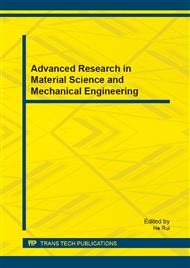p.909
p.915
p.922
p.927
p.936
p.942
p.946
p.951
p.956
Mining Heat Stress Induced Genes Encoding Heat Shock Proteins (HSPs) and Heat Stress Transcription Factors (HSFs) in Strawberry (Fragaria x ananassa)
Abstract:
Plants have developed a variety of responses to extreme temperature situation in order to minimize damage and maintain cellular homeostasis. Recent research has revealed the involvement of heat stress proteins in thermotolerance in Arabidopsis. However, it is still obscure in strawberry plants. To identify heat stress responsive genes in strawberry (Fragaria x ananassa), we constructed a Transcriptome for strawberry and it was compared to Unigene annotated in several available proteomics, including Nr, COG, KEGC, and Swissport. Nineteen candidates with complete open reading frame (ORF) of 191 predicted genes encoding HSPs or HSFs were further analyzed. RT-PCR assays and heat stress induction analysis for these potential HSPs and HSFs were performed. Our data demonstrate that the prediction of potential heat stress responsive genes from our created Transcriptome for HSPs and HSFs, respectively, correlates well with the subsequent experimental results, indicating the Transcriptome we constructed could be translated into other scientific use.
Info:
Periodical:
Pages:
936-941
Citation:
Online since:
November 2013
Authors:
Price:
Сopyright:
© 2014 Trans Tech Publications Ltd. All Rights Reserved
Share:
Citation:


